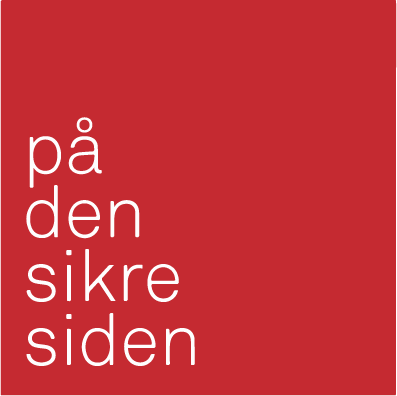
Espionage
The openness and international co-operation of Norwegian education and research is exploited by other countries' intelligence services.
Intelligence services collect pieces of information that they use directly, or put together into a larger picture. This applies to areas such as research, education, technology, politics, economics, and military development.
The purpose of espionage is to exploit and influence assets and to promote the interests of their country at the expense of Norwegian interests.
- What are they interested in and how can it hurt us?
-
Espionage can target many different activities in our sector, e.g.:
- Policy formulation, where researchers contribute to expert committees or make studies for the authorities
- Development and use of technology, through training, research and use of advanced lab equipment
- Mapping of which professional environments have laboratory facilities, knowledge and research projects in which they are interested
- Research collaboration with industry partners in projects with patents and trade secrets
Sometimes researchers can share knowledge, which can be utilized militarily, even if the research collaboration has civilian purposes
The overall effect of espionage has many consequences for our society:
- Democracy is weakened and individuals' freedom of expression is restricted:
- Political decisions are influenced in other ways than through democratic channels and contrary to Norwegian
interests
- Mapping of, or building relationships with students and others who can get useful positions in politics, society
or business
- Mapping, influencing and blackmailing citizens of their own countries in Norway, who are critical of the regime in their home country
- The civilian and military emergency preparedness system in Norway is weakening
- Norway's position in international negotiations is weakening
- Knowledge and technology are stolen to support military purposes, such as the development of weapons of mass destruction
- The competitiveness of Norwegian business and industry is weakened, for example by stealing ideas or influencing people
- How do they work?
-
In authoritarian regimes, intelligence services have a much freer mandate than what is usual in democracies, such as Norway. Typical characteristics are that they work long term, covertly and indirectly:
Long term
Intelligence services operate long-term with mapping, influencing, information gathering, recruitment of sources, and infiltration of computer networks. Small pieces of information from many different sources are put together over time to get a comprehensive overview of various issues, which they may be able to utilize sometime in the future.
Covert
Intelligence services operate covertly. They camouflage their presence in human networks, e.g. at conferences, professional gatherings, or embassy visits. Information, knowledge, and laboratory instruments are also available digitally. Intelligence services are actively working to break into digital networks and may be invisibly present with covert activity. Today, this poses a major threat.
As long as they are not detected, they can continue the covert activity undisturbed.
Indirectly
To hide traces of the activity, the intelligence services work indirectly when they gather information and influence decisions. They rarely go directly to the person they want information from or want to influence.
- Not only the Minister of Education and Research knows about Norwegian technological investment areas. So do employees and management at universities and colleges
- Not only industrial players have information on patents and technological innovation. Research institutions that collaborate with industry also know their secrets and values
- Not only the professor has insight into sensitive research processes. So does the master's students and doctoral fellows, who are supervised by the professor
- Many people can indirectly access sensitive information through the job, such as administrative personnel, cleaners, security guards and craftsmen
- On the inside
-
When intelligence services gain access to sensitive knowledge, information, and technology from within the business, this represents an inside threat.
By recruiting the best talents from their country for studies at master's and doctoral level, or for research stays abroad, they gain access from within. They can also recruit researchers, students and other staff who are already part of a research environment.
Some become insiders under pressure or have financial motives. Others do so because they do not know who they are sharing information with, or how the knowledge can be utilized.
-
What should we be aware of?
-
Espionage is difficult to detect because it takes place in so many ways, and it is impossible to make comprehensive checklists for what to be aware of.
A "gut feeling" that tells you that something is strange or out of the ordinary can be a signal that you should pay extra attention. Here are some situations where there may be reason to:
- Someone shows an unexpected interest in you, your subject or equipment you have access to, without any obvious explanation
- You or others receive disproportionate gifts and access to goods
- A colleague changes behaviour or work patterns for no apparent reason
- Someone asks about who works with what, and what the persons have access to
- Research partners that:
- have unusual or unclear sources of funding
- require secrecy about the research results without an obvious reason
- have unclear or incomplete information about who the client is- Someone use a lab without an agreement, or in ways that have not been agreed
- You see/hear that someone informs about people who are critical of totalitarian regimes
- You or others are exposed to threats or pressure
- Who should I tell and what happens when I do?
-
The Norwegian Police Security Service (PST) has the main responsibility for preventing espionage in Norway. They depend on information from the public. Even small observations and funny events can have great value for PST when they look at it in connection with other information they have.
If is safe to hand over information to PST. It won’t lead to consequences for people who are innocent, or for you who alert them.
Why should you alert PST?
Because the sum of the information that PST receives, enables them to uncover and avert espionage that harms our society.
They need everyone who experiences something suspicious, strange, or deviant, to alert them about this. They want you to have a low threshold for reporting on observations and concerns that may be of value to them.
PST says: Do you see something, say something. But use common sense.
What happens when you alert PST?
PST register the information you provide and look at it in connection with other information they have.
When you hand over information to PST, you can put the uncertainty away. They are responsible for further follow-up, but you will not know what the information you have given them may lead to.
You choose whether you want to state who you are, but they want to have the opportunity to contact you if they have questions related to the tip you give. They never tell who gave them the information.
You can alert PST by:
• Calling PST on 23 30 50 00 (24/7),
• Writing to them: Tip us.
• If there is an emergency, call 112 (Police emergency number)
Remember: it is better to alert them one time too many, than one too few.
- How to mitigate espionage?
-
To prevent espionage, it is essential that we understand the fact that it is happening.
What can you do?
Everyone should consider how espionage may be relevant in their own work or academic life.
Ask yourself and/or discuss with a colleague or supervisor:
- What do I possess that might be of interest to foreign intelligence services?
- How could I be an entry point to information, knowledge, or technology?
- In which activities could I be vulnerable and should be extra vigilant?
- What can I do to protect the assets I manage through my work or studies?
- Whom should I report to or discuss with if I suspect something related to espionage?
What can the institution do?
Educational and research institutions should have an overview of their assets and understand which assets are most vulnerable to espionage.
It is a leadership responsibility to ensure systematic security measures related to, for example, hiring, guest visits, travel, access control, and access management.
In a strong security culture, all students and staff members know how to contribute preventively and what to do when something occurs.
- Espionage and illegal knowledge transfer (export control)
-
Norwegian research institutes create competence and technology with both civilian and military uses. Countries that Norway does not have security policy co-operation with, are interested in such knowledge to develop their own military capabilities.
Some research areas are therefore protected by international regulations to safeguard the security interests of Norway and our allies.
Espionage is used to gain unauthorized access to knowledge and technology that is covered by these regulations. All education and research institutions must know which of their research areas that are to be protected in accordance with the regulations. This is fundamental to provide the right protection.
Norwegian export control legislation regulates the transfer of knowledge of sensitive research areas to certain countries. The Ministry of Foreign Affairs is currently working on changes to the legislation to clarify what it means in practice.
More information on this topic:
- As open as we can, as closed as necessary (a short e-learning from sikresiden.no)
- The Emergency Preparedness Conference 2021 (admission from the Emergency Preparedness Council's conference) contains presentations and discussion on the topic
- Memorandum that provides a brief introduction to control of knowledge transfer (Emergency Preparedness Council in the higher education sector)
- Guidelines for control of knowledge transfer (MFA)

 To install this app on your home screen: Press
To install this app on your home screen: Press